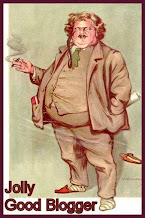Det får heller ingen store overskrifter at fremveksten av bærekraftige demokratier er knyttet til økonomi, til rettferdighetstenkning, grenser, nasjonalisme og kamper mellom ulike grupper.
Eller vel så ofte strander på dette.
For rimelig fungerende demokratier har krevd tid og kulturutvikling, kriger og konflikter, og i noen grad ekstern påvirkning, ofte fra vesten - selv om denne også kan ha negative effekter.
Mye handler om mentalitet og modning. Man må lære seg prosesser. Det må sitte i blodet å respektere både flertall og mindretall. Selv andre stammer har menneskeverd. Demokrati er noe annet enn flertallsdiktatur. Det må ikke bare være legalt, men trygt å være i opposisjon.
 Men hvordan nærmer man seg dette? Hva krever det av forestillinger, av holdninger og sympatier, av ryggmargsreflekser og kunnskaper?Vi mangler ikke analyser, men noen fremstår nok som større nyheter enn andre. Spesielt når man begynner å hevde at utviklingen av demokrati i store deler av verden kan knyttes til misjonærer.
Men hvordan nærmer man seg dette? Hva krever det av forestillinger, av holdninger og sympatier, av ryggmargsreflekser og kunnskaper?Vi mangler ikke analyser, men noen fremstår nok som større nyheter enn andre. Spesielt når man begynner å hevde at utviklingen av demokrati i store deler av verden kan knyttes til misjonærer.Som sosiologen Robert Woodberry i den bredt anlagte studien The Missionary Roots of Liberal Democracy i American Political Science Review. Det finnes nok abstrakter som slår inn flere åpne dører:
This article demonstrates historically and statistically that conversionary Protestants (CPs) heavily influenced the rise and spread of stable democracy around the world. It argues that CPs were a crucial catalyst initiating the development and spread of religious liberty, mass education, mass printing, newspapers, voluntary organizations, and colonial reforms, thereby creating the conditions that made stable democracy more likely. Statistically, the historic prevalence of Protestant missionaries explains about half the variation in democracy in Africa, Asia, Latin America and Oceania and removes the impact of most variables that dominate current statistical research about democracy. The association between Protestant missions and democracy is consistent in different continents and subsamples, and it is robust to more than 50 controls and to instrumental variable analyses.Konklusjonen er altså ikke helt som vi ofte hører om kulturimperialisme og kolonialisme.
Dermed møtte han ikke uventet skepsis.Areas where Protestant missionaries had a significant presence in the past are on average more economically developed today, with comparatively better health, lower infant mortality, lower corruption, greater literacy, higher educational attainment (especially for women), and more robust membership in nongovernmental associations.
In 2010, when Woodberry submitted his article to the American Political Science Review, the editors asked him to add case studies, run more regressions, and make all data and models public. For the article, he produced 192 pages of supporting material.
I stedet for å bli avvist for sekterisk sjåvinisme, fikk han priser for banebrytende og grundig arbeid. Og ros selv fra katolske og sekulære instiusjoner man kunne forvente var mer nølende."It's a remarkable testament to his courage and endurance to get his work in a flagship journal," says Philpott. "In order to make this article fly, he had to leave no stone unturned and anticipate every hypothesis. It's an article whose thoroughness outpaces any I've seen."
Arbeidet oppsummeres i en noe mindre uhildet sammenheng som Christianity Today med at"Why did some countries become democratic, while others went the route of theocracy or dictatorship?" asks Daniel Philpott, who teaches political science and peace studies at the University of Notre Dame. "For [Woodberry] to show through devastatingly thorough analysis that conversionary Protestants are crucial to what makes the country democratic today [is] remarkable in many ways. Not only is it another factor—it turns out to be the most important factor. It can't be anything but startling for scholars of democracy.""I think it's the best work out there on religion and economic development," says Robin Grier, professor of economics and international and area studies at the University of Oklahoma. "It's incredibly sophisticated and well grounded. I haven't seen anything quite like it."
Nå betyr ikke dette at Woodberry ser rosenrødt på alle misjonærer. Dengang som nå er det store forskjeller i mentalitet og virkemidler.Want a blossoming democracy today? The solution is simple—if you have a time machine: Send a 19th-century missionary.
Han er heller ikke blind for at misjonærer har støttet kolonialismen, men det noe av det mer interessante er at dess mer uavhengige misjonærene har vært av statlig kontroll, dess større effekt.We don't have to deny that there were and are racist missionaries," says Woodberry. "We don't have to deny there were and are missionaries who do self-centered things. But if that were the average effect, we would expect the places where missionaries had influence to be worse than places where missionaries weren't allowed or were restricted in action. We find exactly the opposite on all kinds of outcomes. Even in places where few people converted, [missionaries] had a profound economic and political impact.
Det mangler ikke eksempler på dette.Independence from state control made a big difference. "One of the main stereotypes about missions is that they were closely connected to colonialism," says Woodberry. "But Protestant missionaries not funded by the state were regularly very critical of colonialism."
For example, Mackenzie's campaign for Khama III was part of his 30-year effort to protect African land from white settlers. Mackenzie was not atypical. In China, missionaries worked to end the opium trade; in India, they fought to curtail abuses by landlords; in the West Indies and other colonies, they played key roles in building the abolition movement. Back home, their allies passed legislation that returned land to the native Xhosa people of South Africa and also protected tribes in New Zealand and Australia from being wiped out by settlers.
Mye handlet om å bekjempe analfabetisme."I feel confident saying none of those movements would have happened without nonstate missionaries mobilizing them," says Woodberry. "Missionaries had a power base among ordinary people. They [were] the ones that transformed these movements into mass movements."
While missionaries came to colonial reform through the backdoor, mass literacy and mass education were more deliberate projects—the consequence of a Protestant vision that knocked down old hierarchies in the name of "the priesthood of all believers." If all souls were equal before God, everyone would need to access the Bible in their own language. They would also need to know how to read.
Blant mange som fikk glede av dette var Nelson Mandela. Ikke alle holdninger han møtte var like forbilledlige. Men selv når skolene var en del av koloniveldet, utdannet de studenter som var i oppsisjon til det, enten de ble kristne eller kommunister."They focused on teaching people to read," says Dana Robert, director of the Center for Global Christianity and Mission at Boston University. "That sounds really basic, but if you look worldwide at poverty, literacy is the main thing that helps you rise out of poverty. Unless you have broad-based literacy, you can't have democratic movements."
It avoided political involvement, yet inspired the quest for racial equality through its religious ideals.I følge studien fikk altså dette ringvirkninger.
Pull out a map, says Woodberry, point to any place where "conversionary Protestants" were active in the past, and you'll typically find more printed books and more schools per capita. You'll find, too, that in Africa, the Middle East, and parts of Asia, most of the early nationalists who led their countries to independence graduated from Protestant mission schools.
Noe som kan gjelde flere så lenge vi ikke har tidsmaskiner for hånden."I'm not religious," says Grier. "I never felt really comfortable with the idea of [mission work]; it seemed cringe-worthy. Then I read Bob's work. I thought, Wow, that's amazing. They left a long legacy. It changed my views and caused me to rethink."




















1 kommentar :
Many of today's big humanitarian organisations United Nations included, themselves being non-partisan, non-political, non-discriminatory and culturally sensitive. All the big words are there. And we work very hard to promote female literacy even when the local culture is against it. We try to eradicate female gender mutilation and lobby hard to change laws and constitutions to reflect current understandings of human rights . The World Bank has in good faith advised structural adjustment policies that ravaged health and education systems in poor countries. The fervour and zeal, the unquestioned rightness, the willingness for field workers to endure dangers and hardship conditions for a pay packet and what the organisation believes in, bears many similarities to 19 th century missionary work. Yet the same hard-working field worker will disparage missionary effort, based on hand me down facts. Luckily it usually takes only a severe bout of malaria and a visit to the local mission clinic, to knock some humility into us.
Legg inn en kommentar